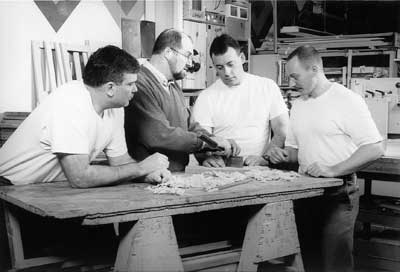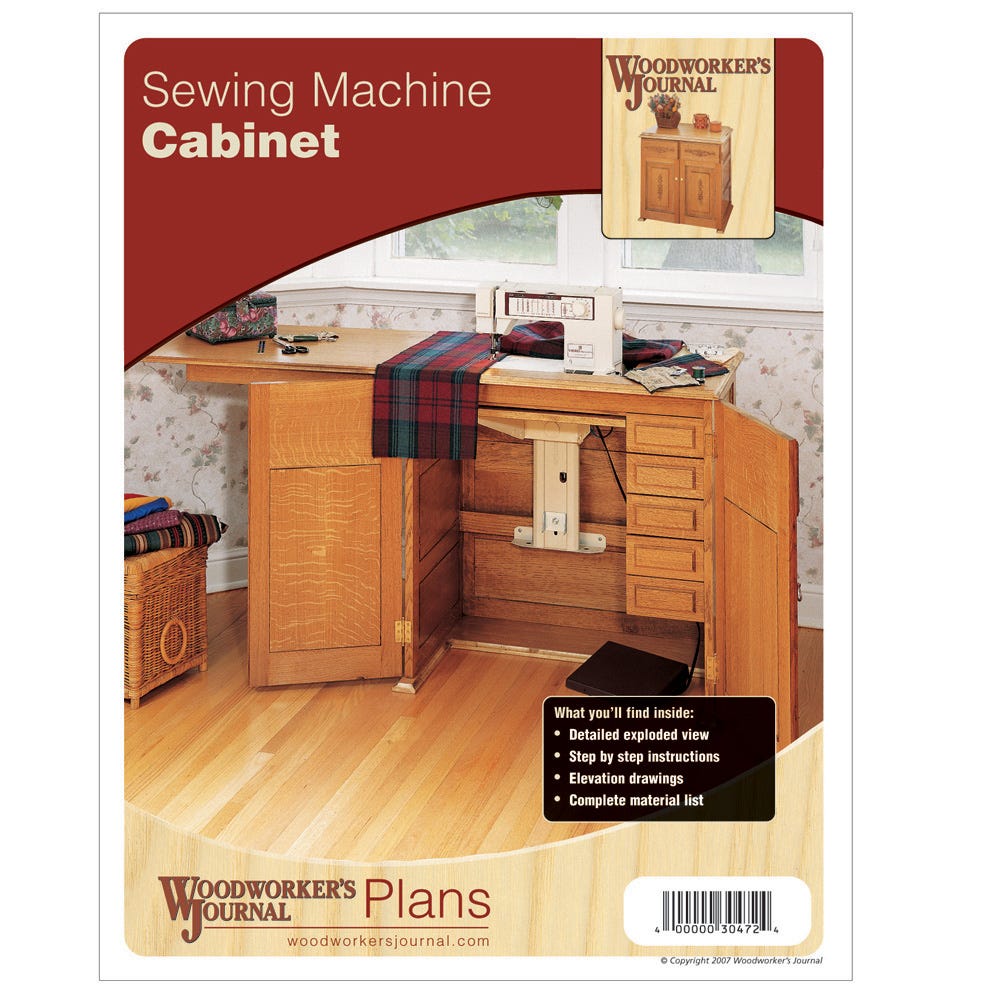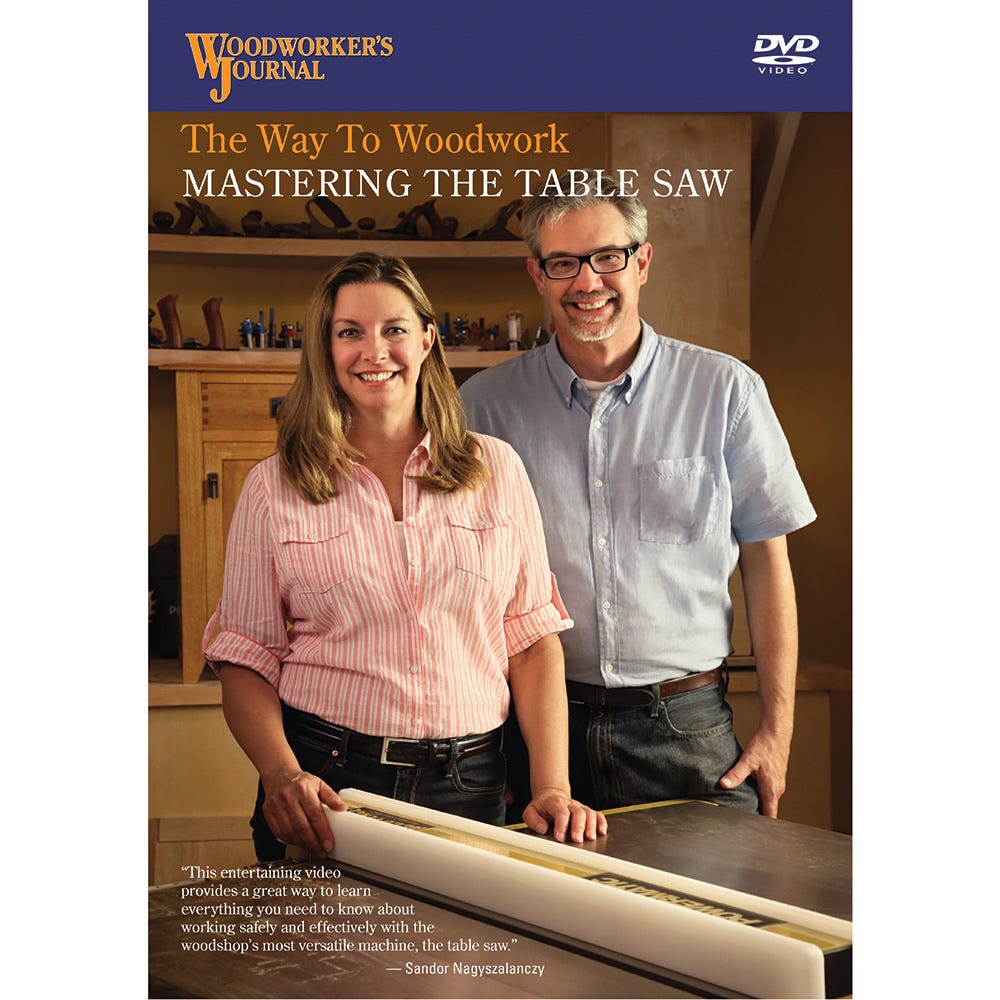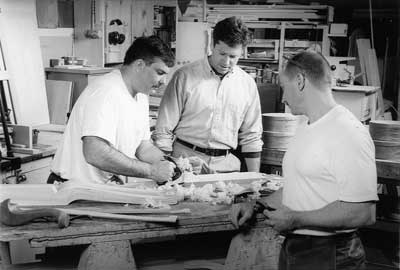
Several years ago, the New Hampshire Furniture Masters responded to a request from former New Hampshire Superior Court Justice Kathleen A. McGuire to visit the hobby craft workshop in one of New Hampshire’s state prisons. Since that initial visit by Furniture Master Terry Moore in 1999, the organization has continued the Prison Outreach Program – with participating inmates’ work currently being showcased in an exhibition at the Furniture Masters’ Gallery in Concord.
The program consists of a rotating faculty of Furniture Masters volunteers presenting to several inmates at one time. Tom McLaughlin, who has been one of those volunteers since the beginning of the program, listed some of the topics covered in presentations at the prison as choosing the correct joinery for an application, how to hand cut dovetails, carving, finishing, vacuum veneering, furniture design and more.
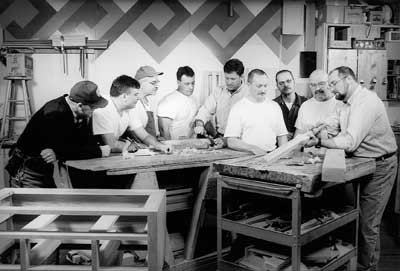
“We’ll set up a portable workbench and we’ll bring in projects or tools and do a demonstration about a particular aspect of fine furniture making,” Tom said. Afterward, there is time for questions from the inmates, and following the Q&A session, the Furniture Masters will often walk around the shop and look at the inmates’ current projects, “If they want to show it to us, or if they have questions,” Tom said.
Tom often begins his teaching with 18th century furniture styles, and notes that inmates’ projects often still gravitate toward traditional pieces. They purchase their own supplies, via such sources as catalogs or orders placed with lumberyards that serve the prisons. However, he said, “They can’t go out to the lumberyard and pick out what they’d like. They can’t select the actual board; they just have to work with what they get.”
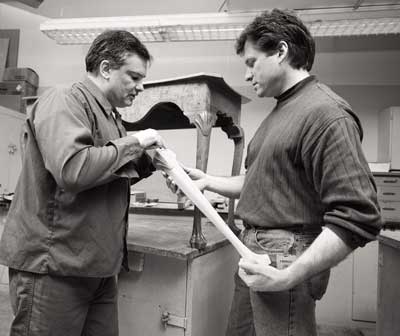
Nonetheless, inmates’ pieces have been appearing in Furniture Masters shows for years. At first, Tom said, the group did not do as good a job as it could have in labeling these pieces, and attendees would be surprised to learn that two or three of the pieces they had just seen were made in the New Hampshire state prisons.
As inmates participated in shows, “The more they accomplished, the more they wanted to be validated – like anyone,” Tom said, which led to one of the logistical challenges of the program: how to physically move the inmates’ pieces around. “Of course, there’s all sorts of security measures,” he said. “It was unforeseen at the beginning that we would be driving their stuff around.”
In addition to gaining new skills through the program, the inmates can pass their completed pieces on to family or loved ones. “The whole process of creating something is bringing something fresh and new into the world that wasn’t there before. That whole process is diametrically opposed to the kinds of things you do to get into prison,” Tom McLaughlin said.
Furniture Master Terry Moore, who has been deeply involved in the project since its beginning, added, “Mastering difficult woodworking techniques builds self-confidence and a sense of self-worth. When an inmate creates a beautiful piece of furniture, he contributes something of lasting value to life — a stark contrast to the path that he was once on.”
Although the Furniture Masters do not have a formal follow-up program with inmates who have participated in the program and are later released, they do know that some of them have gained employment at cabinet shops, and some will sometimes attend other Furniture Masters exhibitions.
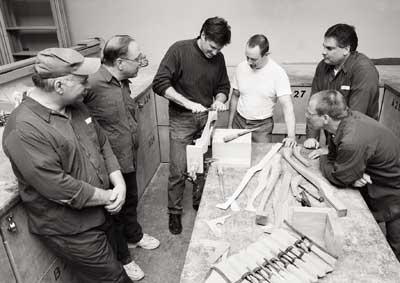
According to Judge McGuire, “The Furniture Masters’ Prison Outreach Program provides inmates with opportunities to spend their time in prison productively, gain skills that make them highly marketable upon release, and work closely with men who are masters of their craft and role models of family and societal values – all with an eye on ensuring that they become responsible citizens who never return to prison.” The Furniture Masters also note a 2014 RAND Corporation study which reported that inmates who participated in correctional educational programs had “43 percent lower odds of recidivating than inmates who did not.”
Still, Tom McLaughlin said, “I am not thinking of myself as the good guy helping the bad guy. They’re just like anyone else, but they made some very bad choices and they’re paying the price by losing their freedom for a period of time. We connect on this level of our love for woodworking and creativity.
“Going into the prison, I’ve often thought ‘what’s the effect on me personally?’” Tom said. “It’s a very strange experience to be free one minute and having dinner with your family, and the next thing you’re clanging through bars and being buzzed through doors to the hobby shop. Lots of guys have been there 20 years. You think of all the things you’ve done in the past 20 years, people I’ve met, places I’ve gone … and they’ve been right there, eating the same food, wearing the same clothes. It’s surreal. On the one hand, you’re very conscious you’re different. On the other hand, it’s the same camaraderie I’ve experienced in any other shop I’ve been in.”
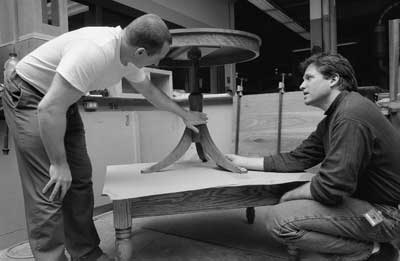
The inmates who participate in the program must have maintained an exemplary disciplinary record for one year, and there is a waiting list. The New Hampshire Furniture Masters began working with the state prison in Concord and have since expanded the program to the Berlin, New Hampshire correctional facility. In 2012, Furniture Masters Brian Reid and Howard Hatch launched a companion program for inmates at the Maine State Prison in Warren.
“What we do inspires the prisoners,” said Brian Reid. “They are learning to be creative. They are gaining confidence in their decisions. They are looking to themselves for answers. They help each other. There are not many other programs in the prison that do this – this is what keeps me going in every week.”
Unfortunately, Tom McLaughlin said, with funding cutbacks in Concord, there are not enough officers to meet the requirement to have someone on duty in the shop when the Furniture Masters are there, to the extent they were a few years ago. “It’s much shorter hours than the earlier days,” he said.
The exhibition “A New Path: Prison Furniture Making Program” will be on view at the Furniture Masters’ Gallery, 49 South Main Street in Concord, New Hampshire, through June 8, with an opening reception to be held from 5 to 7 p.m. on March 27. Admission is free.
